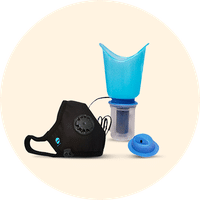Rs.200for 1 bottle(s) (200 ml Oral Solution each)
food interaction for Duphatis Oral Solution
alcohol interaction for Duphatis Oral Solution
pregnancy interaction for Duphatis Oral Solution
lactation interaction for Duphatis Oral Solution
food
alcohol
pregnancy
lactation
Duphatis Syrup may be taken with or without food.
None
None
CAUTION
Consuming alcohol with Duphatis Syrup does not usually cause any harmful side effects.
SAFE
$med_name is generally considered safe to use during pregnancy. Animal studies do not indicate harmful effects. However, there are limited human studies.
SAFE IF PRESCRIBED
Duphatis Syrup may be safe to use during breastfeeding. Animal studies have shown low or no adverse effects to the developing baby; however, there are limited human studies.
SAFE IF PRESCRIBED
SALT INFORMATION FOR Duphatis 3.335gm/5ml Oral Solution
Lactulose(3.335gm/5ml)
Duphatis oral solution uses
{med_name} is used in constipation and hepatic encephalopathy. It may also be used to treats and prevent complications of liver disease (hepatic encephalopathy).
How duphatis oral solution works
Duphatis Syrup works by drawing water into the intestine through osmosis, which makes the stool soft and easier to pass.
Common side effects of duphatis oral solution
Nausea, Flatulence, Abdominal pain, Diarrhea, Vomiting, Electrolyte imbalance
SUBSTITUTES FOR Duphatis Oral Solution
15 Substitutes
15 Substitutes
Sorted By
 Rs. 590.62pay 27% more per ml of Oral Solution
Rs. 590.62pay 27% more per ml of Oral Solution Rs. 328.12pay 26% more per ml of Oral Solution
Rs. 328.12pay 26% more per ml of Oral Solution Rs. 581.17pay 19% more per ml of Oral Solution
Rs. 581.17pay 19% more per ml of Oral Solution- LaxIT L Oral Solution(200 ml Oral Solution in bottle)duckbill drugs PVT. LTD.Rs. 1.18/ml of Oral Solution
 Rs. 241.80pay 18% more per ml of Oral Solution
Rs. 241.80pay 18% more per ml of Oral Solution  Rs. 196.87pay 27% more per ml of Oral Solution
Rs. 196.87pay 27% more per ml of Oral Solution
Expert advice FOR Duphatis Oral Solution
- Lactulose should preferably be taken at bedtime as it requires 6 to 8 hours to show effect.
- It is usually taken once a day as needed for up to 2 weeks. Take it exactly as prescribed by the doctor.
- Take it atleast 2 hours after taking other medicines, as it may interfere with the absorption of other medicines.
- Inform your doctor if you have a history of stomach disorders such as appendicitis or a blockage in your bowel.
- Some healthy tips to prevent constipation from happening:
- Eat more fiber in your diet. Recommended daily intake is 20-35g
- Drink 8-10 glasses of water per day
- Exercise regularly at least 3 times per week
- Do not hold in stool as that can worsen bowel issues
Frequently asked questions FOR Duphatis 3.335gm/5ml Oral Solution
Lactulose
Q. How should Duphatis Syrup be taken?
You should take the prescribed amount in the measuring cup or spoon that is provided with the medicine. You can take it with water or fruit juice if you find it very sweet. Drink plenty of water for better results. Swallow it as soon as you keep it in mouth to prevent tooth decay which can occur if you take it for a longer time.
Q. How long does it take for Duphatis Syrup to work?
It takes about 2-3 days to see the benefits of the treatment. Talk to your doctor if you feel constipated even after 3 days of taking Duphatis Syrup.
Q. What is Duphatis Syrup used for?
Duphatis Syrup is used to treat constipation which is presented as infrequent bowel movements, hard and dry stools. It is also used in patients with hepatic encephalopathy which is a serious liver problem causing confusion, tremors and decreased level of consciousness.
















